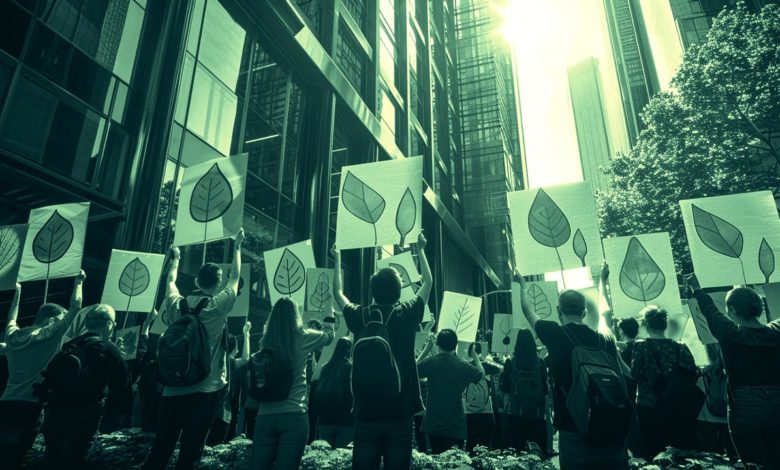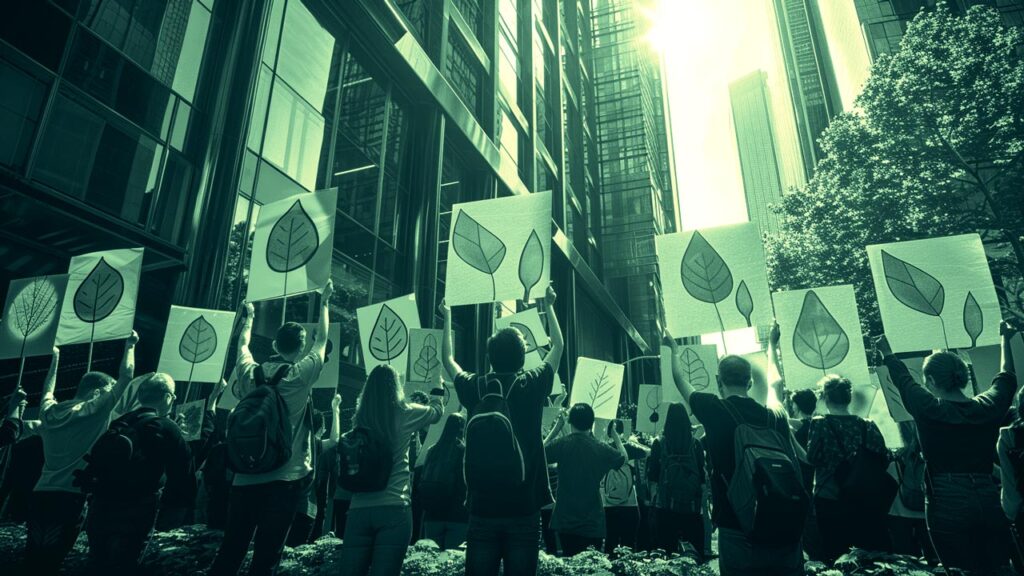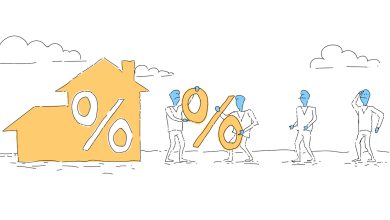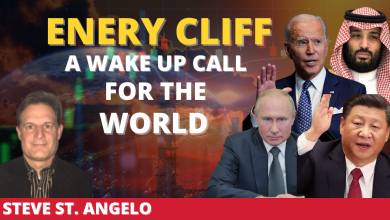ESG Collapsing? The Latest on Corporate “Environmental, Social, Governance”

ESG, or “Environment, Social, and Governance,” is the new feel-good buzzword in the halls of global corporations and megabanks. It’s a PR push to cloak morally disastrous firms in a veneer of social and environmental responsibility — lip service — but at the end of the day, I believe the market will speak.
If ESG initiatives cause these companies to bleed money, they’ll start pulling back, and that’s exactly what we’re seeing. Although the ESG trend is far from dead, I doubt it was ever really about being profitable…it makes more sense as a set of PR initiatives and feel-good public-private partnerships where neoliberal institutions, bureaucrats, and megacorporations can pat one another on the back for being “environmentally and socially-conscious.”
Either way, both JPMorgan and State Street recently left the Climate Action 100+ coalition, a major Wall Street ESG initiative, and BlackRock reduced its involvement. This effectively took almost $14 trillion in assets out of the ESG game. As the Financial Times reported earlier this month about BlackRock:
“…it believes the phase 2 strategy, which takes effect in June, conflicted with US laws requiring money managers to act solely in clients’ long-term economic interest.”
After announcing it would become a pinnacle of ESG, BlackRock announced layoffs affecting 3% of its global workforce — many from ESG departments. In case that wasn’t enough to demonstrate the political toxicity of ESG initiatives, Fox Business even claimed last year that the acronym itself has become a dirty word at the company:
“Company founder and CEO Larry Fink told Fox Business he won’t use the mention of the letters E-S-G any longer because of the controversy it has stirred up in political circles.”
That’s a bit of hyperbole published for the sake of printing an exciting quote — BlackRock still has the most ESG assets under management of any firm, and has made more money than they’ve lost — but it’s still notable. The firm has still achieved net ESG inflows even as this month saw the worst flows ever industry-wide since ESG was birthed, with lower inflows in European markets and net negative flows in the US.
FlexShares STOXX US ESG Select Index Fund Performance Since 2017

Source: TradingView.com
But if the backlash continues to spread and ESG advocates fail to paint the issue as regressive, anti-environmental right-wing meddling, those numbers could continue to dwindle. And if the growing farmer’s protests throughout Europe are any indication, grassroots backlash is growing like a brush fire against the “green bureaucracy” of EU mandates and initiatives like the UN’s Agenda 2030.
WOAH
Absolutely massive farmers protest in Spain today against the climate agenda and Agenda 2030.
SHARE – This is historic 👇pic.twitter.com/bpRoVd0pd9
— PeterSweden (@PeterSweden7) February 21, 2024
Above the ground level in Europe, ESG is not facing the same level of backlash from lawmakers as in the States. Ever-irascible and independent, the US has more momentum in Washington to push back on these initiatives compared to European states overseen by bureaucrats in Brussels. For now, ESG investing is still thriving in BlackRock’s European offices. But the farmer’s protests are saying a mouthful, and if the initiatives ultimately bleed money, that will be all that matters.
Some companies are actually reducing their European ESG commitments simply due to the regulatory environment in Brussels being rife with red tape. While the EU has put forth a plan to streamline its processes, ExxonMobil announced it could be withdrawing billions in European “climate investments” in favor of jurisdictions with more straightforward procedures and fewer regulatory roadblocks.
Meanwhile, the race to be the most “sustainable” and “ethical” company is pushing companies to make hollow “greenwashing” claims, leading to class actions and PR meltdowns. The notion of a global mega-corporation making money in an “environmentally friendly” way is itself more often than not a trendy contradiction for marketing purposes.
For example, there’s United Airlines, which now vaguely asserts they will be “100% green” and generate “net zero” emissions by 2050. That’s a bold claim for a company that, well, flies airplanes all over the world, and one that is now being challenged by civil litigation.
Meanwhile, Hershey is getting pushback on claims that some of its chocolate bars are “100% sustainable” — whatever that even means. These claims are usually slapped onto packages and stuffed into marketing materials without much, if any, further quantification. The civil suit filed in response to that claim states that Hershey still drives deforestation and uses child labor, and the “sustainable” label only applies to a percentage of its chocolate production. As more lawsuits stack up, Bloomberg Law’s Clara Hudson notes, ESG greenwashing could cost companies a boatload of money:
“73% of organizations say ESG disputes are the top litigation risk to them in 2024, according to a Backer McKenzie report that surveyed 600 senior lawyers at large corporations.”
As it stands now, a research firm called ESG Today found that around 70% of consumers are unwilling to spend more for “environmentally-friendly” products and green energy sources. Not surprising, as people are feeling increasingly squeezed by higher energy costs caused by “green” meddling, state intervention, and central bank money printing:
“… two-thirds of consumers report being unable to absorb an energy bill increase of 10%, and only 30% saying that they are confident that their energy will remain affordable.”
With climate change doom and gloom at all-time highs, energy costs increasing for many around the world, and companies asking customers to pay more for less, it’s unlikely the pendulum will swing far enough the other way to move the needle toward anything resembling a full-throated global embrace of ESG. Either way, the battle will be epic.
Call 1-888-GOLD-160 and speak with a Precious Metals Specialist today!
Buka akaun dagangan patuh syariah anda di Weltrade.
Source link







